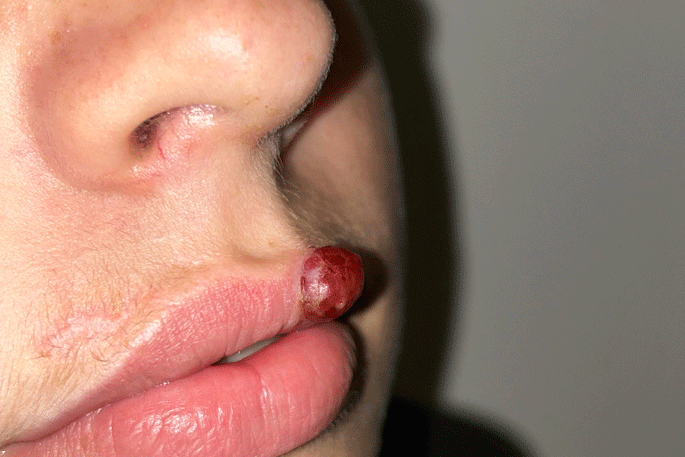A Tauranga teenager with a bleeding tumour on his lip is facing up to eight months wait for treatment through the health system.
His stepfather Gus says the 13-year-old is bullied daily at school because of the lesion. The bullying prompted Gus not to reveal his surname to protect his son's identity.
Gus says his son is suffering emotionally and missing school.
'He's very withdrawn, very quiet.”
The tumour started out as a small blister on his lip, within two weeks it was the size of a grape, says Gus.
In June they went to their GP, where it was diagnosed as a pyogenic granuloma and they were referred to the paediatric department at Tauranga Hospital.
Pyogenic granulomas are benign raised tumours on the skin or mouth that bleed easily.
After an initial letter, the family heard nothing for nearly three months.
Frustrated, Gus contacted the hospital and was told it could be another four to eight months for treatment because of the way the hospital prioritises cases.
'That's when I blew my top. It's like they almost don't want to acknowledge the emotional trauma they put these kids through.”
Gus received an appointment with a specialist contracted by the hospital last week. The doctor confirmed the wait could be up to eight months but offered their services privately at a reduced cost, he says.
The family will have the tumour removed privately so his stepson doesn't 'suffer any more”, acknowledging they are in a 'privileged position” to do so.
Te Whatu Ora Bay of Plenty acting group director of operations Sarah Mitchell says they are unable to comment on individual cases.
Referrals for pyogenic granulomas are made by a GP, if accepted the patient will be seen for First Specialist Assessment, says Mitchell.
'If the outcome of FSA is a referral for treatment and it's accepted, patients are prioritised and those with the highest clinical need will be seen first.”
The target is for planned care procedures to happen within four months of referral for treatment, she says.
'Some services are experiencing high demand and high patient acuity, and have been impacted on by workforce shortages.”
This means some patients who are less urgent are waiting longer than the hospital would like, says Mitchell.
'Te Whatu Ora recognises the potential for impact on mental health for people with this condition and advises families about the support available through their GP and mental health services.”
Public Interest Journalism funded through NZ On Air.

